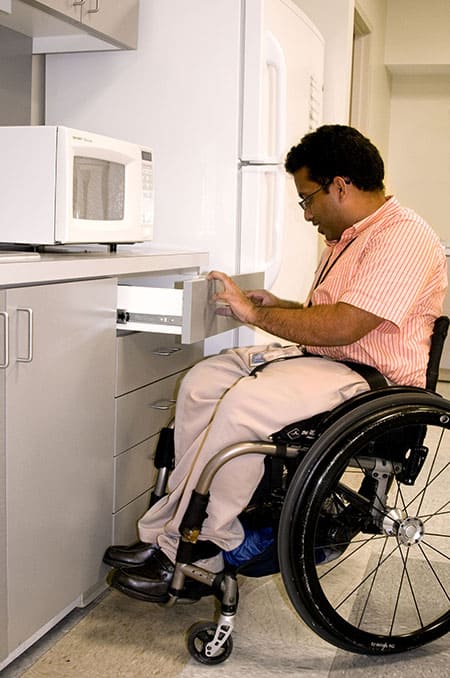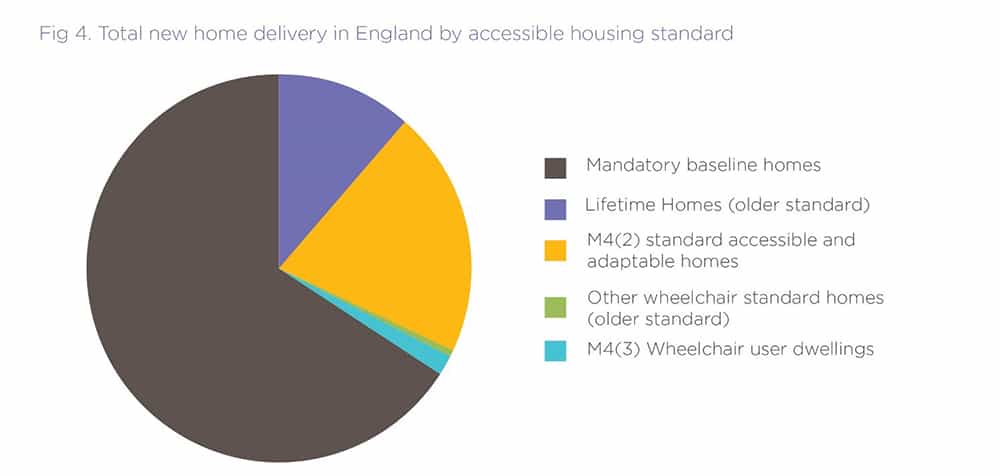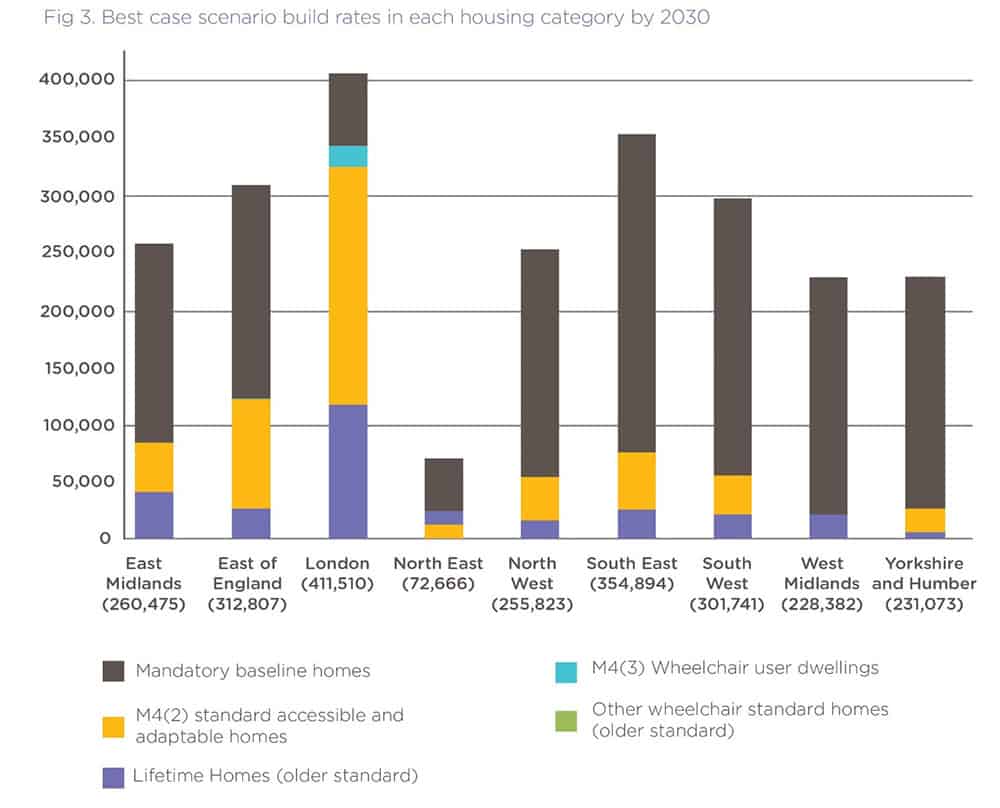Housing association calls on UK Government to change planning policies to avoid ‘accessible homes crisis’

The association’s nationwide investigation of 322 local planning policies revealed a severe lack in the supply of suitable, accessible homes for elderly and disabled people. This movement echoes the Centre for Ageing Better’s report in 2019 that also warned of an accessible housing crisis in the UK and called for a radical housing policy overhaul.
From Habinteg’s new report – ‘Insight Report: A Forecast for Accessible Homes’ – it unveiled that:
- Outside London, under a quarter of new homes due to be built by 2030 are planned to be accessible
- A shocking one percent of homes outside London are set to be suitable for wheelchair users, despite 1.2 million wheelchair users in the UK and a rapidly ageing population
- There is a postcode lottery in the supply of new accessible and adaptable homes
- By 2030, there will only be one accessible new home built for every 270 people in the West Midlands, one accessible new home for every 52 people in the East of England, and one accessible new home for every 24 people in London
- London bolsters the national forecast as the Greater London Authority requires 90 percent of new homes to be built to accessible and adaptable standards (known as building regulations M4 category 2) and 10 percent to wheelchair accessible standards (known as building regulations M4 category 3)

From these results, Habinteg is crying out for the UK Government to change national policy so that all new homes are built to be more accessible and adaptable, as they are in London.
It proposes that the Government should: set the M4 category 2 building regulations in London as standard across the rest of the UK, and ensure the Secretary of State for Homes, Communities & Local Government issues new guidance to local planning authorities on how they should reflect the housing needs of older and disabled people in their plans.
Habinteg also is also calling for local authorities to set a defined percentage of new homes as wheelchair accessible M4(3) Category 3.
Habinteg’s chief executive, Sheron Carter, commented: “We would encourage national government to take a more strategic approach to accessible homes delivery. The optional approach is not only putting older and disabled people’s health and independence at risk but creating costly housing problems for the future.
“While the government has stated their ambition for getting more disabled people into work, our research shows that this will fail unless the housing crisis for disabled people is urgently tackled. We strongly urge the government to raise the mandatory baseline standard for accessible homes.”

There are 13.9 million disabled people in the UK, but only seven percent of English homes currently provide the most basic accessibility features, Habinteg stresses. Unless new homes are suitable, older and disabled people will be excluded from aspects of daily life, placing increasing demand on public services.
Responding to Habinteg’s report, Local Government Association housing spokesman Cllr Martin Tett said: “Housing is critical to the wellbeing of individuals, and well-designed accessible homes are needed to meet the housing needs of our ageing population.
“Councils want to ensure the right homes are built in the right places but currently don’t have the powers or funding to build the homes that are desperately needed.
“We believe that new homes should be accessible or easily adaptable for people of all generations and needs, and it is vital the Government ensures national rules incentivise the building of accessible homes.
“Furthermore, it is crucial to acknowledge that the majority of people will live in existing housing. The Government needs to continue to invest in supporting the adaptation of homes to meet the needs of people as their circumstances change.”

